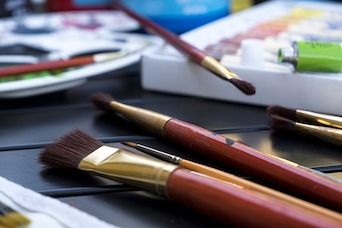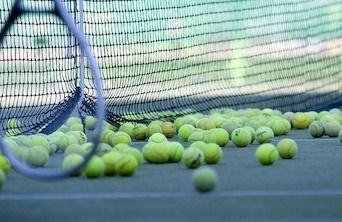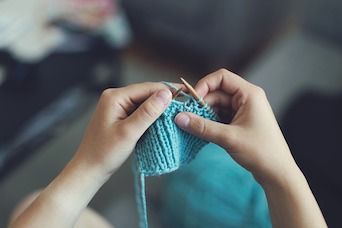How Hobbies Can Improve Practice Success
Everyone should have a hobby. They’re good for your mind, your body and your business!
You know what they say about all work and no play. To stave off boredom and improve mental and physical health, people need something other than work to occupy their time. Research shows that engaging in a hobby improves general health and decreases the risk for depression and dementia.
But did you know that having a hobby can also benefit your veterinary practice?
Allowing yourself to break from your busy week in order to focus on something other than work builds character and teaches you a host of skills.

It teaches you how to network.
Not only does a hobby give you something to talk about with clients and colleagues, but many hobbies require you to get out and interact with new people. These people may not work in veterinary medicine, but you might be surprised by the ways they can benefit your business.

Whether you attend kickboxing classes, take fishing lessons or play tennis with a local group, you’ll likely encounter other small business owners, financial planners or life coaches who can offer insight and advice about their areas of expertise. And, who knows, they may end up as your clients.
It teaches you patience.
The hustle and bustle of daily practice make it difficult to slow down and take a breath. Learning something completely new and out of your wheelhouse is the perfect way to acquire patience. Once you start struggling with understanding and developing your hobby, you’ll gain a better sense of the importance of patience.

It teaches you to stay mentally alert.
Having a hobby refreshes your mind after a long day of seeing patients. Instead of going home to veg out in front of your TV, make the effort to decompress with something that stimulates you. You’re taking your mind off work but applying brain power to your hobby — and keeping yourself more mentally alert in the process.
As added bonuses, you will start to feel more awake throughout your day, look forward to challenging yourself and feel more confident about pushing yourself out of your comfort zone.

It teaches you to prioritize.
Time management in an overbooked and understaffed practice can be difficult — and is a reality for many veterinarians. Having a hobby will teach you how to make time for bettering yourself and, in turn, your practice.

Say you need to meet with your tennis group at 7:30 p.m. You’ll need to leave your practice at 7 p.m. to make it on time, which means you need to set limits for yourself and the rest of your team. Hobbies force you to push yourself to set goals, create to-do lists, trim schedules and make it all work by prioritizing every day.
It teaches you perseverance.
Never giving up is something that many veterinarians have struggled with over the years. With psychological distress and suicide rates increasing among veterinary professionals, it couldn’t be more important to learn about endurance.
Taking on a hobby that you really need to work at — one in which you may fail occasionally but with which you can achieve success in the end — will teach you how to do the same when faced with another euthanasia or 10-hour work day.